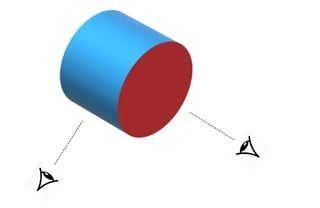Yes, yes, and yes, because correctness is a value, not a fact. People make a choice on the standards of what is correct, and therefore choose what is correct often on the basis of what benefits them. In analytical philosophy, three subjects come to mind quickly and are relevant to embracing this reality, which in a significant way reject the law of non-contradiction.
The first of those is dialetheism (SEP). Dialetheism is a way of approaching logic that makes contradiction a non-issue. From the article:
A dialetheia is a sentence, A, such that both it and its negation, ¬A, are true. If falsity is assumed to be the truth of negation, a dialetheia is a sentence which is both true and false. Such a sentence is, or has, what is called a truth value glut, in distinction to a gap, a sentence that is neither true nor false.
A second is non-classical paraconsistent logic which is closely related to dialetheism but broader. It is weaker than classical logic because it restricts claims in a lesser way regarding logical consistency. From the article:
A paraconsistent logic is an attempt at a logical system to deal with contradictions in a discriminating[clarification needed] way... The study of paraconsistent logic has been dubbed paraconsistency,3 which encompasses the school of dialetheism.
Third, underdetermination of theory is the idea that our theories can be equally true, but inconsistent in at least a logical appraisal. In radical forms, theories are thought to be entirely incommensurate from a semantic perspective. An easy way to understand this is that two models of the world may be mutually exclusive, but both readily useful in describing the world. From the WP article:
In the philosophy of science, underdetermination or the underdetermination of theory by data (sometimes abbreviated UTD) is the idea that evidence available to us at a given time may be insufficient to determine what beliefs we should hold in response to it.1 The underdetermination thesis says that all evidence necessarily underdetermines any scientific theory.2
So, taken as a whole, the last 100 years have admitted a great number of inroads to rejecting classical notions of logic, reasoning, and rationality as objective and independent of the thinker and her values. Certainly other philosophical systems have long recognized what analytical philosophers now accept. There are may bases for concluding that ideas may be mutually contradictory but equally true from the level of the proposition (dialetheia) to the system of logic (paraconsistency) to the entire theory itself (underdetermination). Any other reading of logic and philosophy, at least in the analytical tradition, is inadequate.

